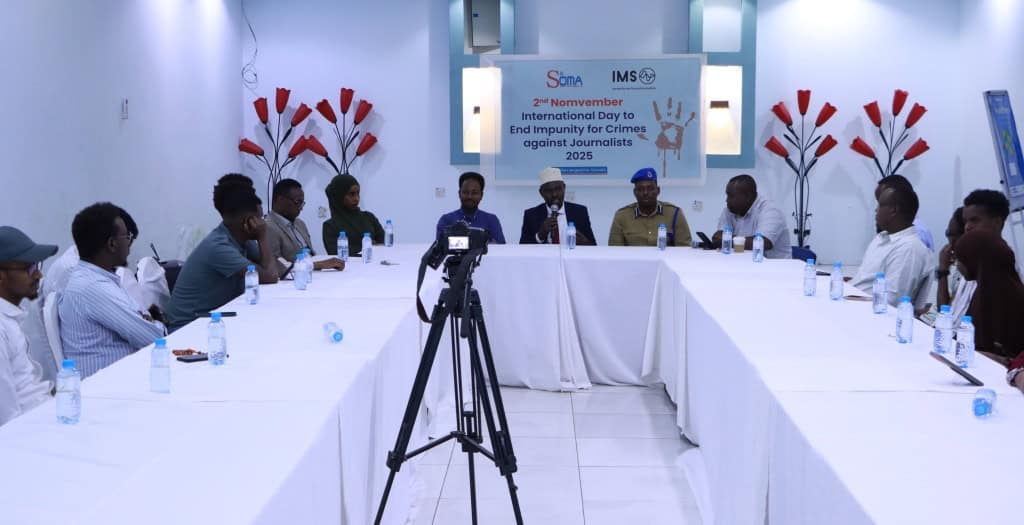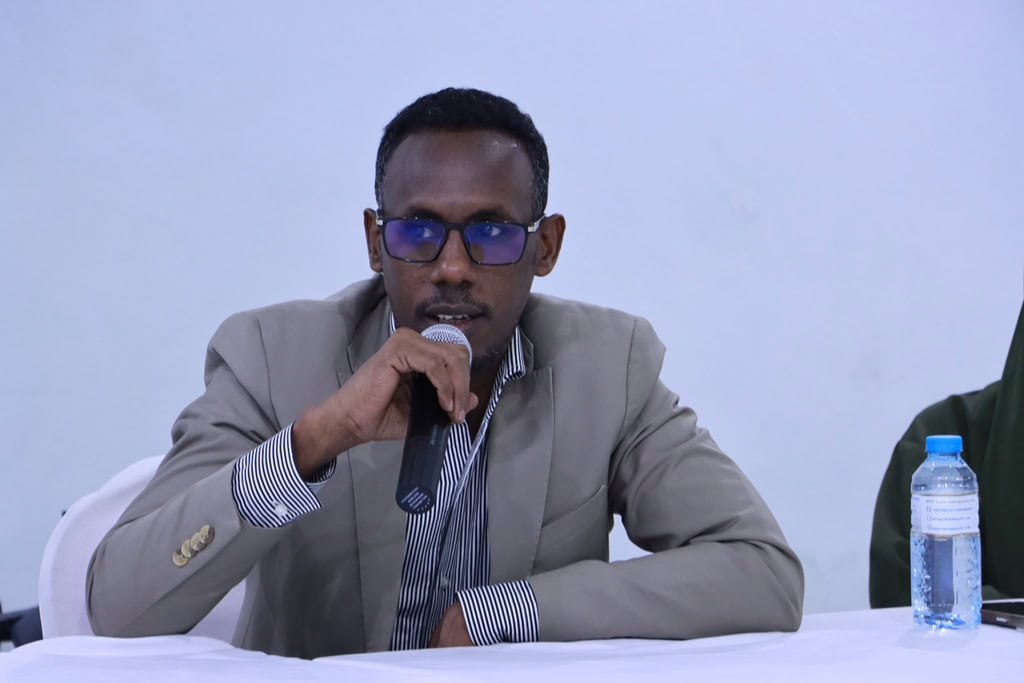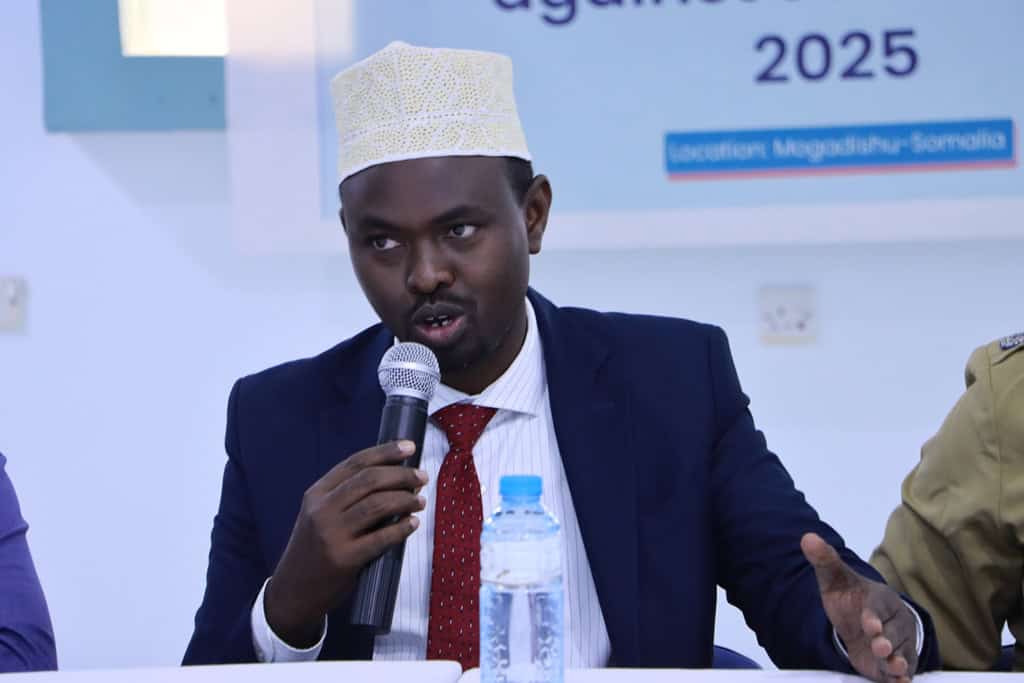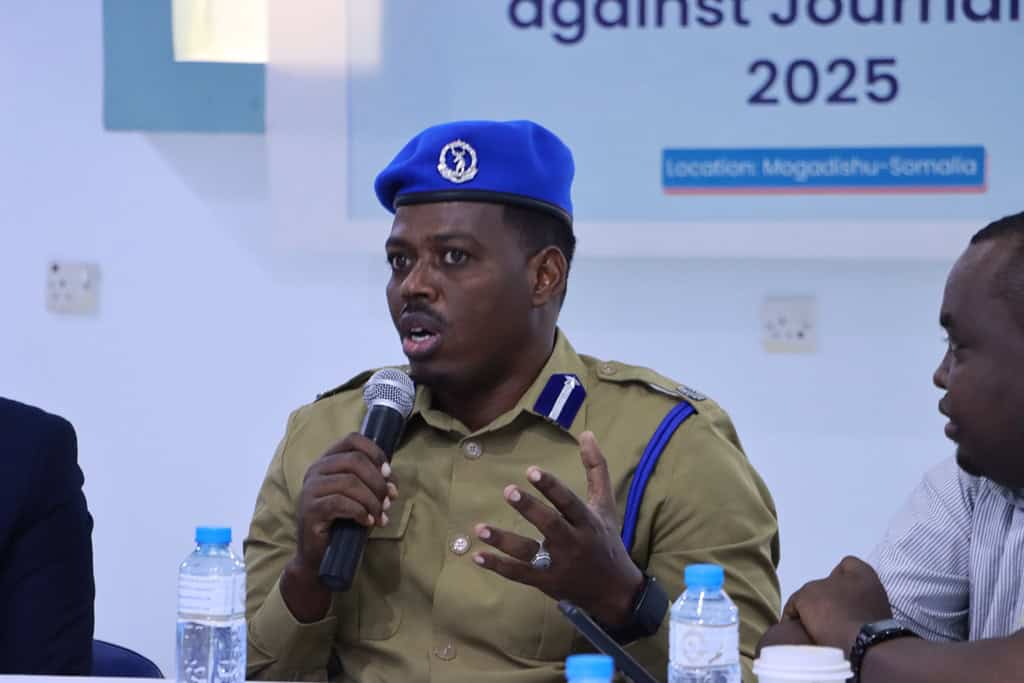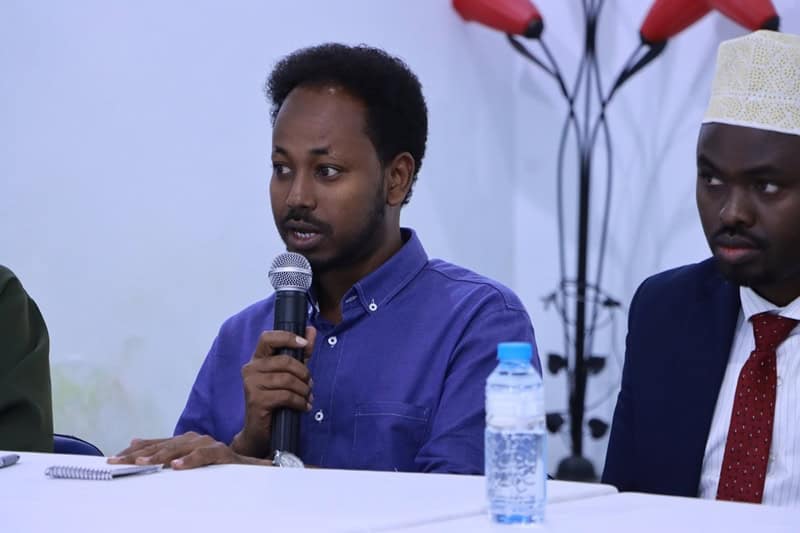Press Statement
International Day to End Impunity for Crimes Against Journalists (IDEI)
Organized by the Somali Media Association (SOMA) and sponsored by International Media Support (IMS).
Mogadishu, Somalia, November 4, 2025: The Somali Media Association (SOMA) successfully commemorated the International Day to End Impunity for Crimes Against Journalists (IDEI) on November 2, 2025, in Mogadishu, Somalia. The event brought together journalists, media leaders, government officials, and civil society representatives to highlight the importance of justice for crimes against journalists and reaffirm the collective call for accountability and press freedom in Somalia.
This year’s commemoration was held under the global theme “Justice . Safety. Accountability”, providing a platform to discuss the persistent challenges Somali journalists face, including threats, violence, and a culture of impunity that undermines freedom of expression.
Speakers emphasized the need to strengthen legal and institutional mechanisms to protect journalists, ensure fair investigations, and hold perpetrators accountable. Testimonies from journalists who experienced threats and violence highlighted both the risks involved in reporting and the resilience of media professionals committed to truth and justice. The event was officially opened by SOMA Secretary General, Mohamed Abduwahab, who shared findings from SOMA’s 2025 media monitoring report:
“Our monitoring shows that journalists in Somalia continue to face intimidation not only from extremist groups but also from security agencies meant to protect them. Impunity remains a serious challenge, and we must work collectively to ensure justice and accountability for all media practitioners.”
According to SOMA’s report, 123 cases of violations against journalists were recorded across Somalia in 2025:
61 journalists were arrested without warrant;
10 journalists were tortured or beaten during reporting or detention;
30 journalists were suspended or denied access to work for political reasons;
22 journalists were directly threatened, often by armed officers.
The regional distribution of these incidents was: Mogadishu (76), Somaliland (32), Garowe (2), Dhuusamareeb (2), Laascaanood (3), Gaalkacyo (4), Cadaado (2), and Afgooye (2). Only three of the 123 cases reached court — one in Mogadishu and two in Somaliland — illustrating the widespread impunity facing Somali journalists. Among the victims, 10 were women, many of whom experienced gender-based violence and public humiliation. During the panel discussion, Mr. Muse Moallim Mohamed, former Chief of the Benadir Regional Court, stressed the importance of judicial accountability:
“The court primarily handles civil cases, and judges must ensure that individuals appear before the court within 48 hours of arrest. If this procedure is not followed, the responsible prosecutor must be held accountable. Justice delayed is justice denied.”
Mr. Abdifitah Adan, Spokesperson of the Somali Police Force, highlighted recent improvements:
“Journalists previously faced serious threats, killings, and arbitrary arrests by both extremists and government authorities. Today, the situation has improved. We are committed to creating a safe working environment, ending unlawful detention and mistreatment, and raising awareness among police and security officers on journalists’ rights. Dialogue and cooperation with media leaders are essential to sustaining this progress.” Shafi Ibrahim, The Head of the Department of Journalism and Communication at Mogadishu University added:
“Educating journalists is key to building a safer, accountable media environment. Institutions must equip them with knowledge, ethical standards, and legal awareness to operate safely and independently. Journalists need a safe environment to report freely. Impunity undermines our work and the public’s right to know. Dialogue between media and authorities is essential for justice and safety.” Shamsa Ibrahim, Director of the Women Media Network (WMN), emphasized gender-specific risks:
“Women journalists face double threats — for being journalists and for being women. Gender-sensitive safety measures and accountability mechanisms are urgently needed to protect women in journalism.”
Sumaya Abulkadir, a female journalist:
“As a woman reporter, I often face threats and harassment. Events like this give us a platform to share experiences and push for protection and accountability.”
Mr. Abdirahman Ali, a male journalist:
“Journalists need a safe environment to report freely. Impunity undermines our work and the public’s right to know. Dialogue between media and authorities is essential for justice and safety.” In conclusion, through the IDEI 2025 commemoration, SOMA reaffirmed its unwavering commitment to justice, safety, and accountability for all journalists in Somalia. The Association calls on government institutions, security agencies, media houses, and international partners to take concrete and sustained actions to investigate and prosecute crimes against journalists. Protecting media professionals is not only essential for their safety but also for upholding the public’s right to information and strengthening Somalia’s democracy.
